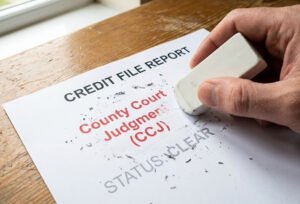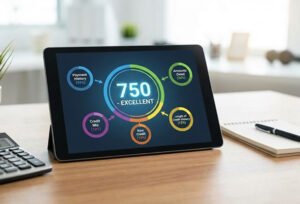If you’re struggling with your repayments, exploring your debt relief options can help you decide whether an IVA is right for you or not. Read on for our guide to four of the most common solutions
How to explore your debt relief options
There’s no one-size-fits-all when it comes to managing debt; different debt relief options suit different people. It all depends on the type of debts you’re dealing with, the disposable income you have available, and the severity of your situation overall.
There are several formal and informal debt relief options available, including IVAs, but how can you decide which one is right for you? Don’t worry; we’re here to help.
Take Breathing Space
Breathing Space is a government programme that gives people in debt up to 60 days during which interest will be frozen and no further action will be taken from creditors. It’s a respite period that can take the pressure off and give you time to seek professional debt advice. Taking Breathing Space could help you explore the debt relief options available to you and decide whether an IVA might be right for you. You can apply for Breathing Space once every 12 months through a debt adviser.
Seek debt advice
The good news is that you don’t have to go it alone. Tackling escalating debts and finding a workable debt relief option can be daunting, but that’s where seeking expert debt advice can help. Our friendly team offer a confidential, judgement-free service for anyone struggling to manage their finances. We’ll talk through the different options available and help you decide which would work best for your circumstances. We can also help you maximise the other services and benefits that might be available to you too.
Is an IVA right for you?
An IVA – short for Individual Voluntary Arrangement – is one of the most well-known debt relief options, but it’s not right for everyone.
A formal agreement that typically lasts several years, an IVA is managed through an Insolvency Practitioner who will liaise with your creditors on your behalf and make an agreement with them so you can pay back all or part of your debt in more manageable repayments. Your creditors won’t be able to act against you or contact you during the IVA term.
An IVA could be a good solution for you if you’re dealing with several creditors, have at least £70 of disposable monthly income available, and are committed to making regular debt repayments via your Insolvency Practitioner. A set-up fee will also usually apply as well as a handling fee each time you make a payment.
An IVA might not be the best option for you if you don’t have any disposable income available, your debt is a student loan or magistrates’ court fine, or the creditors holding 75% of your debts won’t agree to it. Your IVA will also likely prevent you from taking out any new types of credit for a period, will stay on your credit report for up to six years, and could be cancelled if you don’t keep up with the agreed payments.
Is a Debt Management Plan right for you?
A debt management plan (DMP) is an informal arrangement that you can organise yourself or set up via a third party like a debt adviser or charity. While there’s no guarantee that your creditors will agree to it, and no legal protections apply, you might be able to secure lower monthly repayments and more time to repay your debts.
As it’s an informal debt relief option, a DMP might be right for you if you’re struggling with your finances for a short amount of time and expect to be able to recover soon. Those with non-priority debts like credit cards, overdrafts, or personal loans might also be well suited to a DMP. You’ll need to have enough money available to make regular repayments, even if they’re lower than they would normally be.
It’s worth keeping in mind that a DMP can affect your credit score for at least six years. It might also not be the best solution for you if you have very little disposable income, would struggle with an informal solution, find it difficult to deal with creditors directly, or have priority debts.
Is a Debt Relief Order right for you?
A Debt Relief Order (DRO) is a debt solution designed for people with very little or no disposable income. It’s a formal option that essentially suspends your debt payments for a period of 12 months. If your circumstances haven’t changed by the time your DRO ends, the debts included in it will be written off.
A DRO might be right for you if you have less than £30,000 total debt, have no assets worth more than £2,000, and have less than £75 available to put towards your debt payments each month after all your essential costs have been covered.
It might not be appropriate for you if you own your own home, have assets or a car worth more than £2,000, or have disposable income available.
Is Bankruptcy right for you?
Bankruptcy can be seen as a last resort when it comes to debt relief, but if you’re severely struggling with your finances, it might be the best option for you.
A formal solution, bankruptcy can be imposed by a creditor if you owe them more than £5,000 or you can declare yourself bankrupt by applying online through the Government website. An admin fee of £680 will be charged, but you’ll then hand control of most of your financial affairs over to the Insolvency Service.
What happens next will depend on your circumstances; if you have any assets, these may be frozen or sold so that the proceeds can go towards paying off your creditors.
Bankruptcy might not be right for you if you need to take out a new credit agreement soon, want to protect your assets, or work in a sector that prohibits bankrupt employees such as the financial sector, law, civil service, police, prison service, or military.
Looking to explore your debt relief options? Our team of experts is here to help. Give us a call on 0161 660 0411 or send a message here






